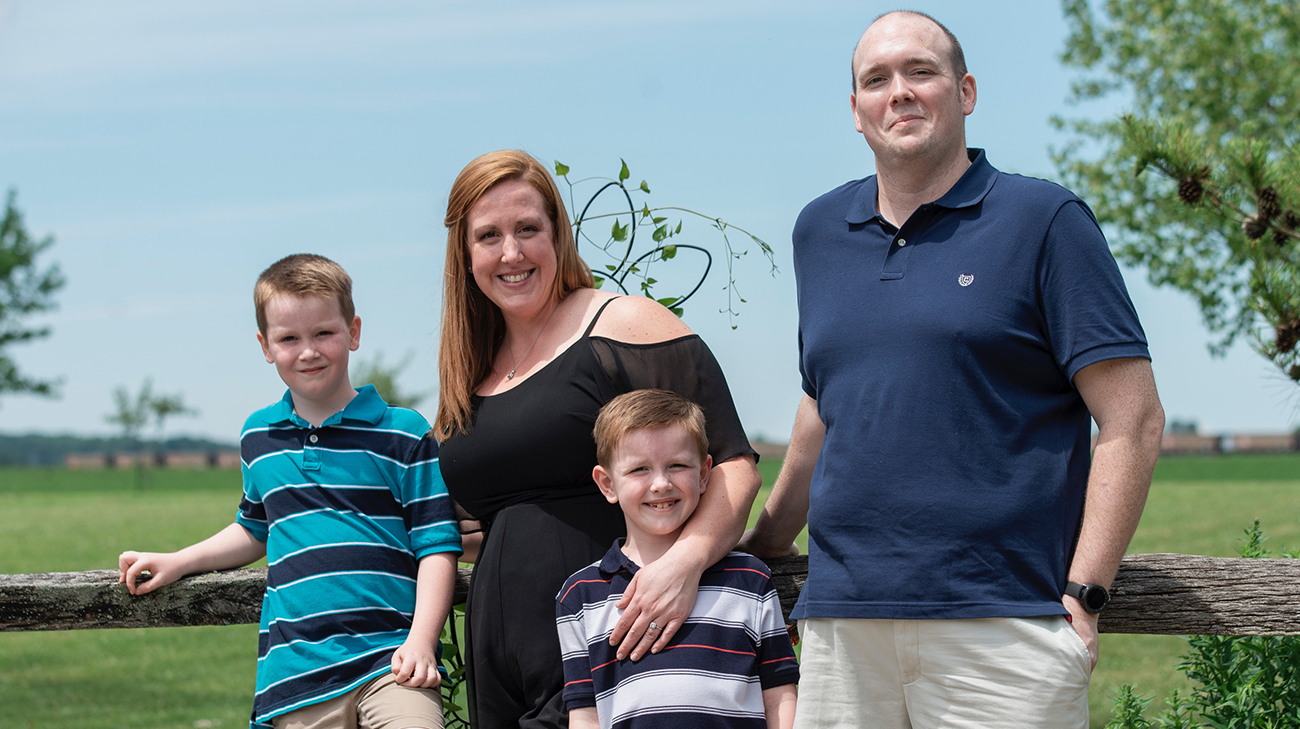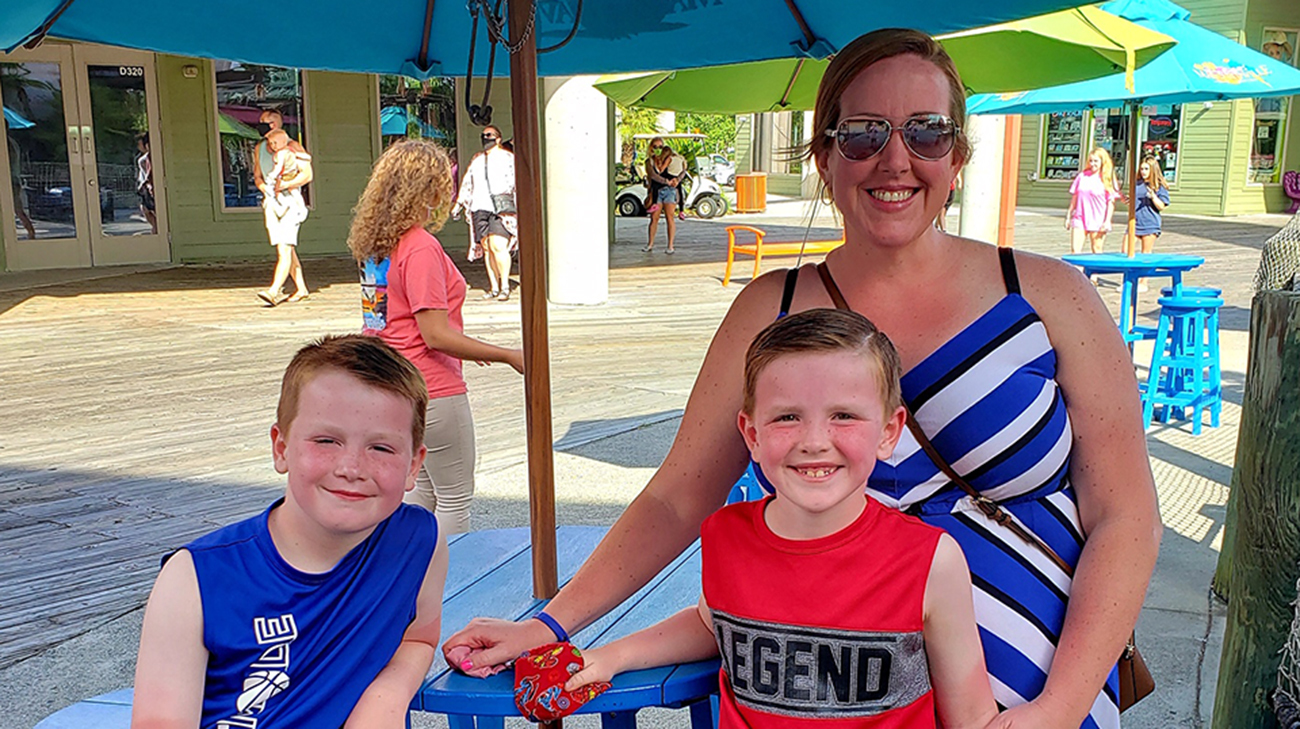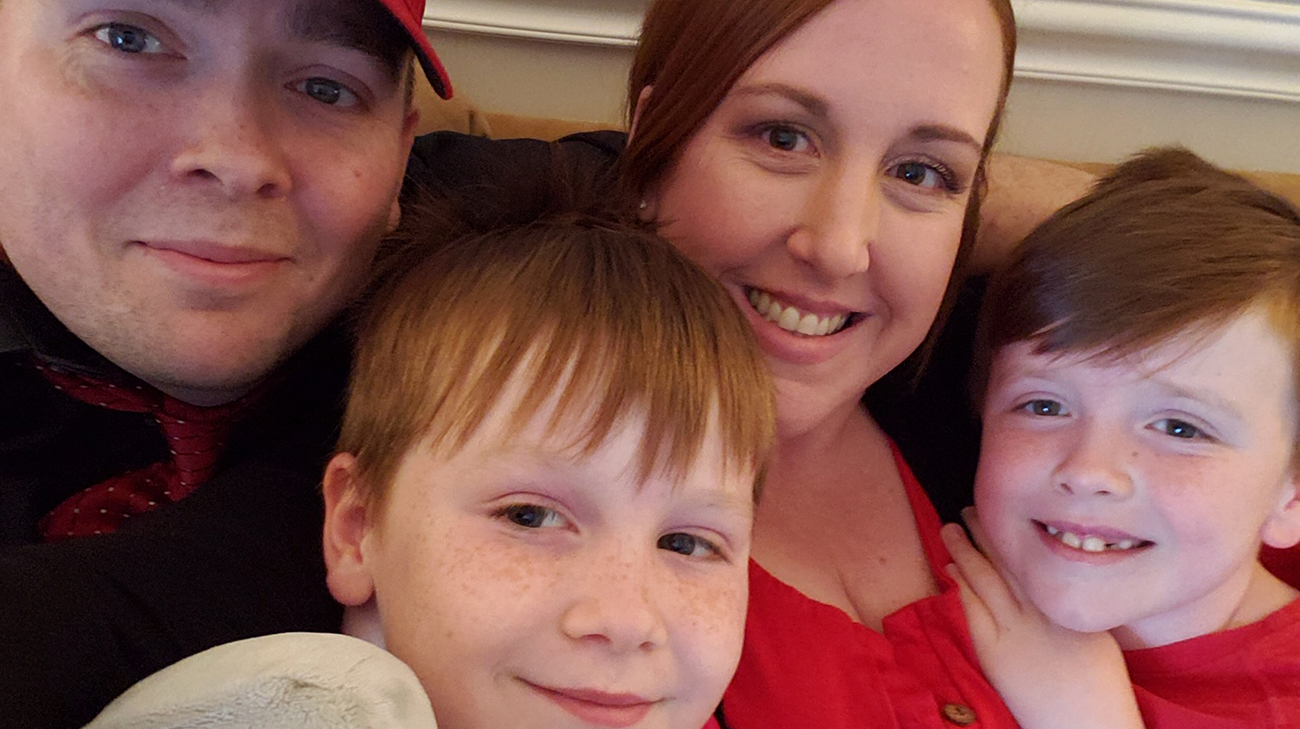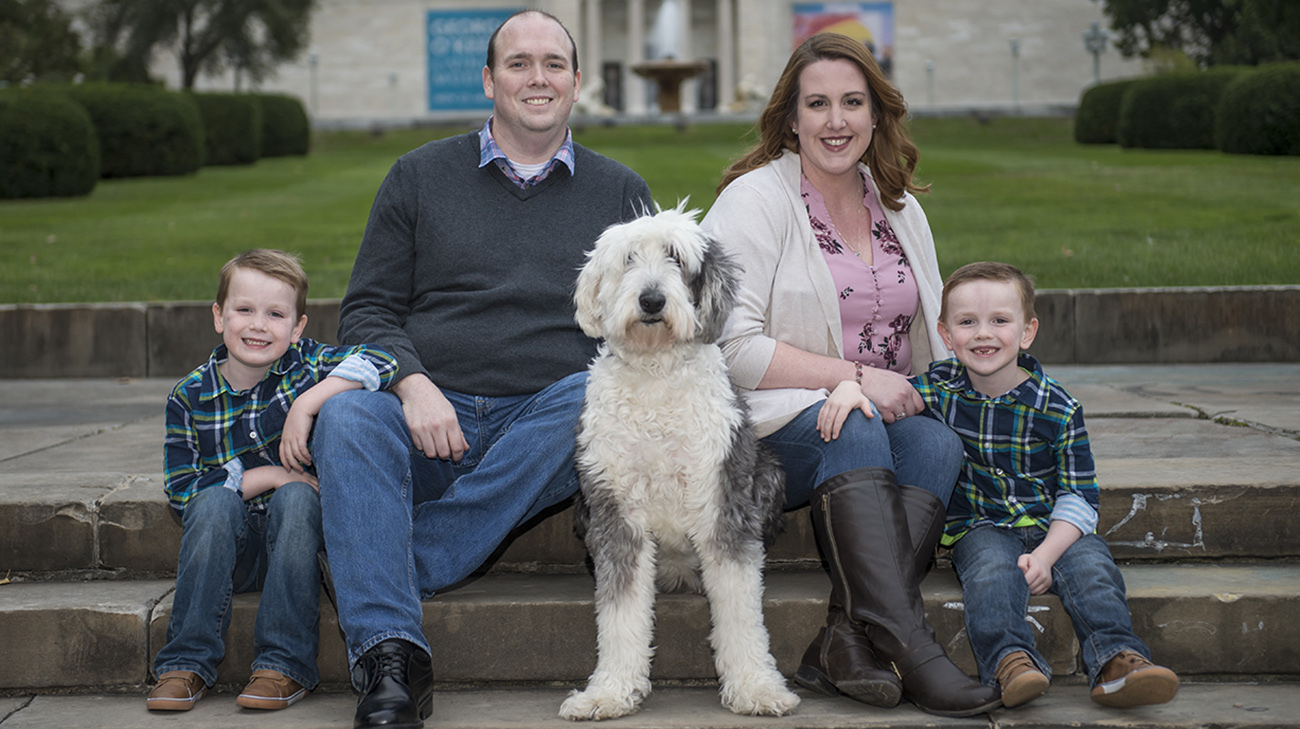
In spring 2020, as the COVID-19 pandemic enveloped Ohio and the rest of the nation, Cera Flynn’s job suddenly changed. A former teacher who serves as an instructional coach for charter school teachers, Cera – used to hands-on, in-person, classroom-based training – switched exclusively to virtual, video-only engagements, and the nature of her work altered, too.
“Part of my job is to be intuitive and give teachers what they need in the moment,” says Cera. “When COVID-19 hit, what they needed most was somebody to listen to their frustrations, fears and anxieties, and to say we’re going to get through this.”

Cera with her twin sons, 8-year-old Aidan and Liam. (Courtesy: Cera Flynn)
In doing so, Cera is drawing on her own years of therapy and counseling to help manage and control her lifelong struggles with anxiety and depression. With the help of her longtime therapist, Adam Borland, PsyD, clinical psychologist at Cleveland Clinic’s Beachwood Family Health Center, Cera understands the impact stress and fear have on mental health.
“Being someone who struggles with mental health, I’ve learned through the years that I have to make it a priority. It’s not negotiable,” Cera adds. “If I don’t, it’s a domino effect and everything else starts to tumble.”
Nevertheless, the COVID-19 crisis has really put her ability to deal with these challenges to the test. Just as her job suddenly evolved in April, so, too, did the educational path for her twin sons, 8-year-old Aidan and Liam, who became online students.
Days after bringing Lily, a new puppy into the family (who turned out to have a serious medical condition requiring emergency care), Cera’s husband, Tim, came down with COVID-19 in early July. Again, quite suddenly, life changed and the family was forced to self-quarantine.
Cera felt overwhelmed. “It was crushing to try to manage it all by myself,” she explains. “When you’re in quarantine, you’re limited. My mom and other people couldn’t come in and help to take the kids, or do laundry or let me just lay down and take a nap. I felt like I was adrift.”

Doctors diagnosed Cera's husband, Tim (far left), with COVID-19, in July 2020. (Courtesy: Cera Flynn)
Even in her most desperate hours, Cera has diligently practiced the coping techniques that work for her. She practices deep breathing, using a meditation/relaxation app on her smartphone and includes bursts of exercise, like a quick walk around the block. Additionally, she schedules check-in meetings with – or simply texts – Dr. Borland.
As she describes it, “I’ve talked with Dr. Borland multiple times over the past several weeks. Sometimes all you need is to have somebody you trust who can remind you of the self-care or coping mechanisms that are easy to forget during crisis times.”
According to Dr. Borland, COVID-19 has had a similar impact on many individuals, including several of his patients. “In situations like this, when things seem like they’re spinning out of control, it’s really important to shift your focus to what you do have control over,” he explains. “And that is prioritizing self-care without feeling guilty about it.” Especially for parents of younger children, caught up in a whirlwind of responsibilities amidst the COVID-19 crisis, feelings of guilt can be debilitating.
For example, Cera recalls a recent chat with one of her sons, who felt neglected because of the time required to care for Tim as well as their sick puppy. “As a parent, that makes me feel so bad. I told him I’m sorry, but that’s just how it has to be right now. I really try, but sometimes I can’t be 100% available to him,” Cera reveals. “I’m constantly aware how much the stress impacts the kids, too.”

Cera places a priority on self-care to help manage her mental health. (Courtesy: Scott M. Duncan Photography)
As Tim slowly recovers, Cera is hopeful their lives and routine will regain a semblance of normalcy in the coming weeks. Still, she knows struggles will reemerge in their lives, making her constant attention to self-care vitally important.
“You have to teach yourself to get out of that negative loop and take care of yourself. I don’t need that kind of thinking. What I need is a growth mindset of positive thinking, that I can get through this, I can get better, this isn’t forever,” Cera explains. “Just keep repeating it to yourself until you believe it.”
Dr. Borland notes mental health care, which was once stigmatized, is being embraced by more people – especially as the pandemic has gone on.
“For too long, there has been a negative stigma around mental health. But the last thing we need during a crisis, or any time, is for people to bottle up their emotions,” he says, adding that the availability of virtual visits makes counseling easier for many patients. “A therapy session is a safe place to talk and express concerns, frustrations and emotions. We all need that.”
Related Institutes: Neurological Institute

